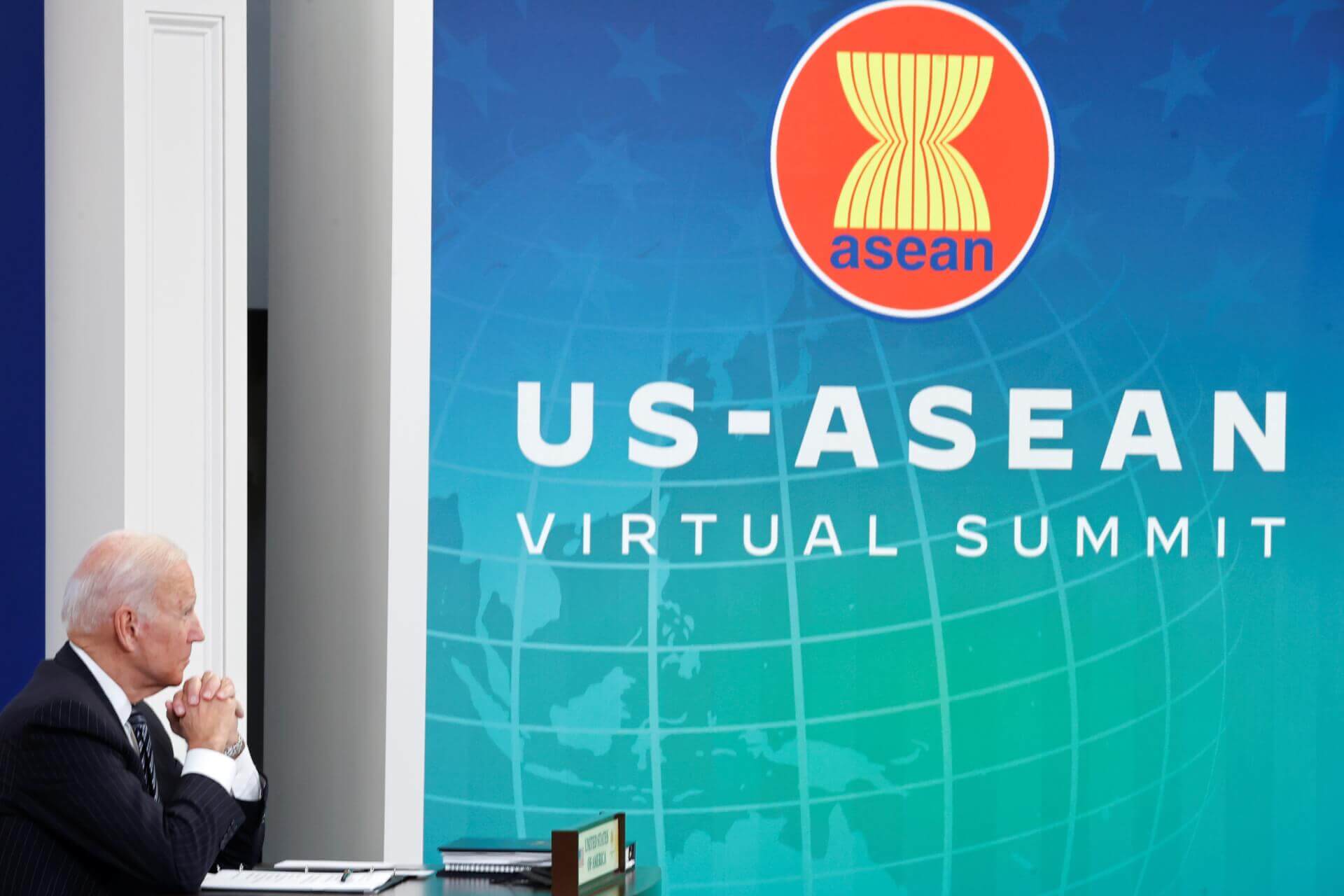President Joe Biden bolstered the United States’ (US) partnership with the Association of South-East Asian Nations (ASEAN) during the US-ASEAN virtual summit on Tuesday. After a four-year absence, Biden reasserted Washington’s commitment to the ten country bloc with a $100 million investment that seeks to help member nations address various issues.
In his opening statement, the US President highlighted: “Our partnership is essential in maintaining a free and open Indo-Pacific, which has been the foundation of our shared security and prosperity for many decades.” He added that this partnership is essential in forging “new efforts to expand high-level US-ASEAN cooperation in health, climate, energy, transportation, and gender empowerment.”
A White House statement mentioned that the new initiatives to expand the US-ASEAN strategic partnership aim to support the region’s recovery from COVID-19, address the climate crisis, promote economic growth, and develop human capital.
To this end, Biden also announced the delivery of over 40 million vaccine doses and more than $200 million in emergency health and humanitarian assistance to ASEAN members.
The summit was hosted by Brunei and attended by Cambodia, Indonesia, Laos, Malaysia, the Philippines, Singapore, Thailand, and Vietnam. Myanmar, however, was excluded on the grounds of breaking ASEAN protocol because of its military coup. ASEAN invited Myanmar to send a non-political representative, but the request was denied by the junta, which said that it would only accept the participation of the “head of state or head of government or his ministerial-level representatives.”
The last American appearance at the summit was in 2017 under former president Donald Trump. However, the US has a history of neglecting ASEAN that goes back to the Obama and George W. Bush administrations, putting into question whether Southeast Asia remains an afterthought in Washington’s policy.
American engagement in Southeast Asia has been comparatively more aggressive under the Biden administration. After Biden came to power, Secretary of State Antony Blinken spoke with US allies in Southeast Asia. More recently, Vice President Kamala Harris and Defence Secretary Lloyd Austin conducted tours to the region.
Relations between the US and China following the 2017 summit have been at an all-time low. Therefore, Biden’s engagement with ASEAN can be seen as an effort to counter China’s influence in the region. However, during Tuesday’s summit, Biden avoided any specific mention of China, possibly because he plans to meet his Chinese counterpart Xi Jinping in a virtual conference later this year.
Considering ASEAN is China’s largest trading partner and that the bloc and Beijing form the world’s largest free trade agreement, the US’ engagement in the region could further intensify the Sino-American rivalry. However, experts like Anita Powell from Voice of America, have reported that most ASEAN members “refuse a binary choice between the US and China and underscore the need to cooperate with both, while ensuring freedom of navigation, including in the Taiwan Straits.”
Biden Strengthens US Partnership With ASEAN, Announces $100 Million Investment
America’s partnership with ASEAN plans to fund health, economic, social and climate reforms.
October 27, 2021

SOURCE: REUTERS
